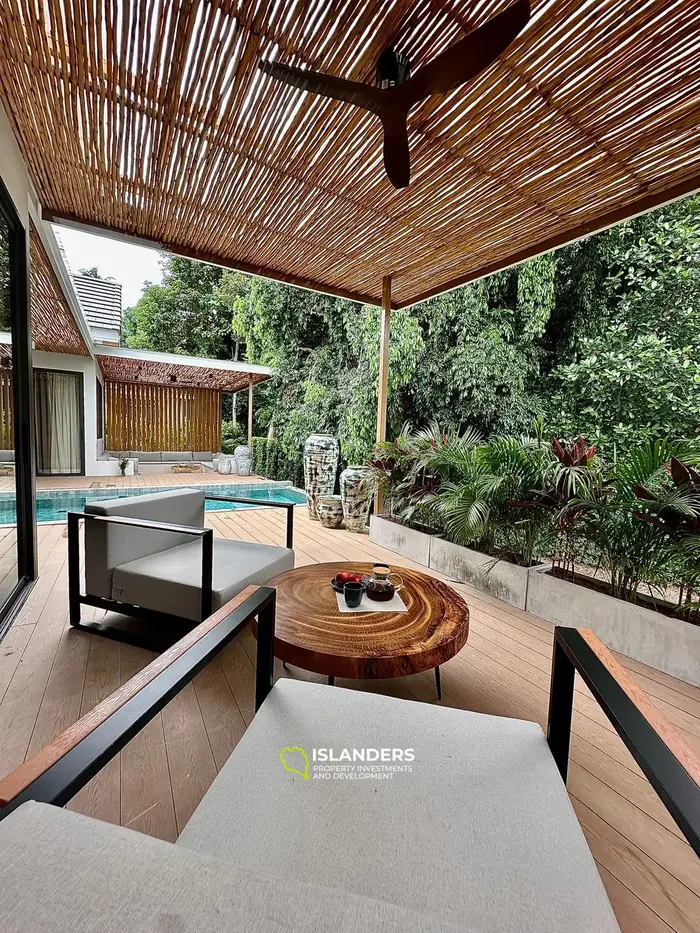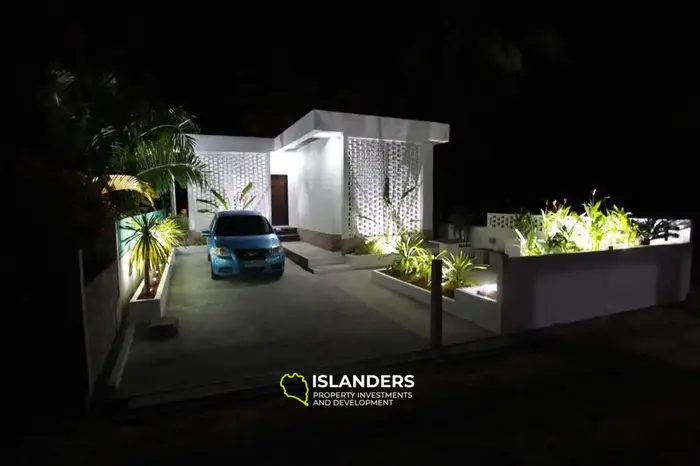A business visa (Non-Immigrant B, or
simply Non-B) is an official permit for long-term stay in Thailand for the
purpose of working or doing business. It is a mandatory step for anyone who
wants to legally work, open a company or invest in the Thai market.
Who is this
option suitable for?
●
Entrepreneurs who want to register
a company in Thailand;
●
Hired employees who have received
an official invitation to work;
●
Investors investing in Thai
businesses;
●
Freelancers who want to legalize
their work through business structures.
Difference between business visa and other visa categories in Thailand
A business visa has key differences from
a tourist, student and other visa categories.
|
Visa
type |
Purpose
of stay |
Work
permit |
Validity
period |
Extension |
|
Business Visa (Non-B) |
Work, opening a business |
Yes (with Work Permit) |
90 days, then extendable up to 1 year |
Yes, every year |
|
Tourist (TR) |
Short term stay, holiday |
No |
30-60 days |
No |
|
Student (ED) |
Education at school, university |
No |
90 days, then extended |
Yes, up to 1 year |
|
Elite Visa |
Long term accommodation |
No |
5–20 years |
Not required |
A business visa does not automatically
grant the right to work – this requires a Work Permit.
What grounds are needed to obtain
a business visa?
To obtain a business visa, you must prove
the basis for its issuance. There are three main ways:
●
Employment in a Thai company. The
employer must issue a work permit, provide an invitation and confirm that the
company meets the visa requirements (for example, there must be at least 4 Thai
employees per foreigner).
●
Registering your own business in
Thailand. Opening a company with a share capital of 2 million baht gives the
right to a business visa and subsequent registration of a Work Permit.
●
Investments in Thai companies.
Buying a stake in a business (usually at least 49% of shares) may be the basis
for obtaining a business visa.
What documents are required to apply for
a business visa?
To submit an application to the consulate
or immigration office, you will need a standard package of documents:
●
Passport – valid for at least 6
months.
●
Invitation from a company – if the
visa is issued through an employer, a contract or letter of employment is
required.
●
Company registration documents –
charter, registration certificate, tax reports.
●
Financial documents – a bank
statement confirming the availability of funds, as well as the company’s
authorized capital (if issued through a business).
●
A visa application is a standard
form that is filled out when submitting documents to the consulate.
Additionally, certificates of no criminal
record, medical certificates and photographs may be required.
The process of obtaining a business visa
to Thailand
The process of obtaining a business visa
involves several stages.
Step 1: Find an employer or register a company
If the applicant applies for a visa
through employment, he/she must find an employer who agrees to prepare the
documents and issue a Work Permit. For entrepreneurs, it is necessary to
register a company that meets the visa requirements.
Step 2: Prepare documents and receive an invitation
The employing company must issue an
invitation, confirm that the foreign employee will work legally and provide all
registration documents.
Step 3: Submitting an application at the consulate or visa application
centre
Business visas can be obtained at Thai
consulates abroad. Popular countries for submission: Laos, Cambodia, Malaysia.
In some cases, you can submit documents within Thailand, but this is more
complicated and expensive.
Step 4: Enter Thailand and register with immigration
After receiving a visa, you must enter
Thailand within 90 days. Upon arrival, you will need:
●
register with the company (for
employees);
●
submit documents to the
immigration service;
●
Obtain a Re-Entry Permit if you
plan to travel abroad.
Step 5: Obtaining a Work Permit
A business visa does not give the right
to work without a Work Permit. To obtain a permit, you must submit documents to
the Ministry of Labor of Thailand. Only after receiving a Work Permit can you
officially work or manage a business.
Where can I get a business visa for
Thailand?
The main rule is that a business visa
cannot be issued within Thailand if the applicant is already in the country on
another visa (tourist, student).
Popular countries to apply to:
●
Laos (Vientiane) is one of the
most convenient places to get a visa, the Thai consulate here works steadily.
●
Malaysia (Kuala Lumpur, Penang) –
suitable for those who want to quickly obtain a visa without a long wait.
●
Cambodia (Phnom Penh) – fast track
option available, but visa regulations may change.
Is it possible to get a visa within Thailand?
Previously, some agencies offered to
process business visas within the country, but this practice has become more
complicated since 2023. In rare cases, it is possible to submit documents
through legal companies, but this will require additional costs and
intermediaries.
Thailand's immigration policy is
constantly changing, so it's important to stay up to date. In recent years, authorities
have tightened controls on shell companies used by foreigners to obtain
business visas. Now, every company must meet strict requirements for authorized
capital, number of employees, and tax reporting.
Cost of a business visa in Thailand
The cost of obtaining a business visa in
Thailand depends on several factors: the type of business, the number of
required documents and the services of intermediaries.
Applying for a business visa at a Thai
consulate abroad will cost approximately 2,000–5,000 baht (depending on the
country of application). Additionally, you may need the services of lawyers or
agencies if you apply through intermediaries – the cost of such services starts
from 15,000 baht.
To obtain a business visa through company
registration, you will need to invest at least 50,000-100,000 baht for legal
registration. In addition, annual expenses include:
●
Tax reporting – from 10,000 baht
per year;
●
Accounting services – from 3000
baht per month;
●
Social contributions for employees
are approximately 1,000 baht per person.
Cost of obtaining a Work Permit and social taxes
The cost of obtaining a Work Permit
starts from 15,000 baht, but the final amount depends on the type of company
and region. You also need to take into account monthly payroll taxes (around
5%–10% of the employee's salary).
Work Permit and Work Rules in Thailand
To work in Thailand, a business visa is
not enough – you need to apply for a Work Permit. This document is issued by
the Ministry of Labor and allows foreigners to legally engage in certain
activities.
What types of jobs are available to foreigners?
In Thailand, there is a list of permitted
professions that foreign citizens can apply for:
●
English language teachers (subject
to qualification);
●
Company executives and owners;
●
IT specialists, programmers,
engineers;
●
Consultants and specialists in the
field of tourism;
●
Workers in the real estate and
finance sectors.
What professions are foreigners prohibited from taking up in Thailand?
Thai law prohibits foreigners from
working in certain areas. These professions include:
●
Salespeople and cashiers;
●
Taxi drivers, public transport
drivers;
●
Builders, painters, masons;
●
Massage therapists and beauty salon
workers;
●
Farmers, fishermen, street
vendors.
Any work without a Work Permit or in a
prohibited area is considered illegal, which can lead to fines, visa
cancellation and deportation.
Business visa extension and visa type
change
A business visa is issued for 90 days,
but can be extended up to 1 year. To extend, you must comply with the
conditions and submit documents to the immigration office.
The procedure for extending a business
visa includes several stages:
- Preparation of documents: passport, work permit, company tax
reports, registration documents.
- Submit your
application to the immigration office no later than 14 days before your
visa expires.
- Payment of
duty (1900 baht).
- Waiting for a decision takes from 3 to 10 working days.
Is it possible to change a business visa to a tourist or long-term
visa?
Changing a business visa to a tourist
visa within Thailand is not possible - to do this, you need to go to a
neighboring country and submit documents to the consulate. However, changing to
a residence permit or an Elite Visa is possible if certain conditions are met
(investments, long-term residence).
What to do if your extension is denied?
If the immigration service refuses to
extend your visa, there are several options:
●
File an appeal through a lawyer or
consulting agency.
●
Travel abroad and apply for a new
visa.
●
Consider alternative stay options
(for example, applying for a long-term Elite Visa).
Pros and Cons of a Business Visa in
Thailand
A business visa is one of the few legal
ways to stay in the country for a long time. However, it has both advantages
and certain risks.
|
Pros |
Cons |
|
Legal right to work |
High costs of registration |
|
Possibility of long-term stay (up to 1 year) |
Need for annual renewal |
|
Opportunity to open your own business |
Difficulties with obtaining a Work Permit |
|
Possibility of obtaining permanent residence
by running a business for a long time |
Strict immigration controls |
|
Developed market for startups and investors |
You can't work without a Work Permit even if
you have a visa |
It is important to consider all the pros
and cons before applying for a business visa, as this category of visas
requires serious financial investments and strict compliance with the law.
Conclusion
A business visa (Non-B) is one of the
most popular ways to legally stay in Thailand, but its registration requires
strict adherence to the rules. Regardless of whether the visa is issued through
an employer or a company registration, it is important to consider all
financial and legal aspects.
The choice between working for hire or
starting a business depends on personal goals. For employees, it is important
to find a reliable employer who can handle all the paperwork. For
entrepreneurs, the process will be more difficult, since registering a company
requires significant costs and compliance with Thai law.
To avoid problems with the immigration
service, it is important to prepare all documents in advance, monitor changes
in laws and not try to circumvent visa rules. Then a business visa will become
a reliable way to stay in Thailand for a long time and conduct legal
activities.






